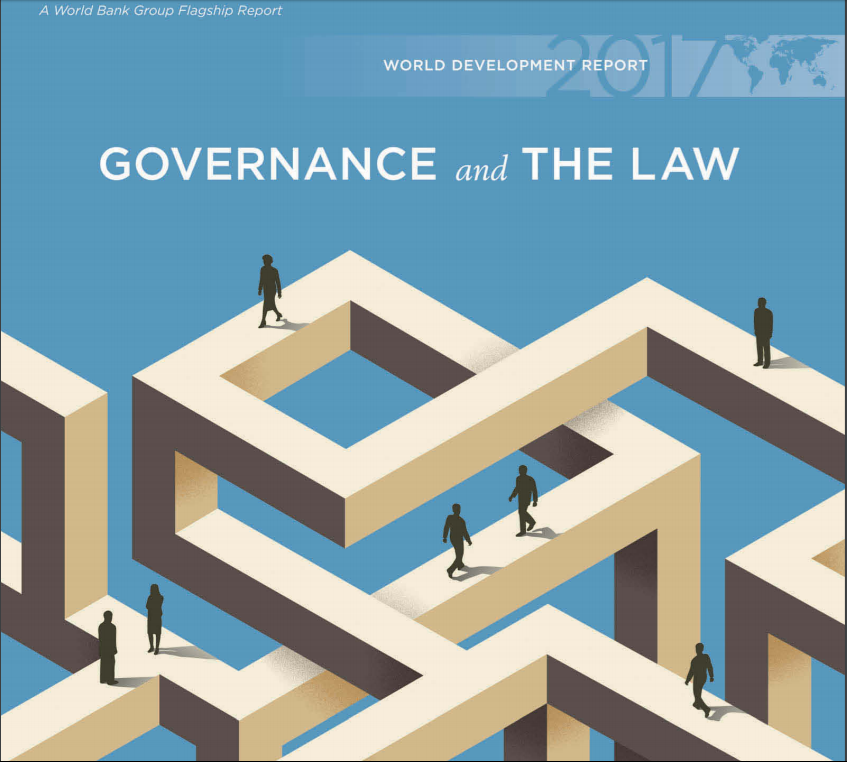The flagship World Development Report 2017 by the World Bank Group highlights the need for continued collaboration between governments, citizens, civil society and private sector to improve governance and produce “life-improving outcomes.” This is in the midst of declining development assistance and strained government budgets. The movement for community-led development (CLD) in particular helps to support these endeavors, to guarantee that local constituencies lead reform efforts and promote more sustainable development. The report also discusses the role of providing financial resources to support participatory and demand-side initiatives that promote collective action by communities.
The report says that development is necessarily messy and nonlinear, and therefore, stakeholders in development work need to be more agile, adaptive and develop frameworks for feedback mechanisms and citizen engagement in order to meet the expected opposition to these initiatives. The following areas are particularly relevant to CLD: decentralization, social organizations and induced public participation.
Decentralization provides opportunity for social and economic experimentation of policy choices at the local level without risking the entire country. This attracts competent outsiders into leadership who spur innovation in providing alternative solutions to challenges at the grassroots. Competition and demand for competent leaders provides incentives for incumbents and new leaders to perform well, because their political careers depend on it. Further, success at local levels can lead to national adoption of policies. This provides an incentive to local leaders who may want to step up into national leadership to demonstrate their competence.
The place for citizen engagement in leading development is at the front. Citizens have the opportunity to effect change in governance through various complementary mechanisms. The process is long-term, uncertain and difficult and requires patience and building of coalitions to meet the challenges. Social organization improves coordinated action among citizens around specific issues and push for policies and laws to bring new issues to prominence. Many countries in the world have adopted democratic norms which encourage and protect the formation of autonomous civil society that promotes civic activism. Moreover, the availability of communication technologies has increased access to information and enabled easier and less costly tools for coordination across the globe.
Induced public participation provides communities with the space and process for discussing and weighing in on policy alternatives and helps to rebalance power for marginalized groups by giving them a voice in deliberations. Improving the participatory process requires existing mechanisms for downward accountability. The media has a particular role in providing information and promoting participation through political deliberative forums. In Kenya for instance, evidence suggests that a weekly panel discussion on politics and governance increased knowledge and citizen engagement. Backed by a range of actors including community-based organizations, the media and nongovernmental organizations, there has been an increase in the number of transparency and accountability initiatives, which have resulted in reduced corruption in the Indian state of Andhra Pradesh, and reduction in under-5 mortality in Uganda.
Despite the gains made, challenges exist that engender inequality. For instance, local elites at decentralized governments can capture participatory processes and exclude minority and dissenting voices. Evidence suggests that more wealthier, educated and politically connected males are more likely to participate in governance processes. Secondly, increased availability of digital technology does not automatically improve the situation unless efforts are made to increase access to poorer people. In Brazil for instance, online voters in municipal budget proposals were significantly wealthier than offline voters. Finally, there have been increased government efforts to limit the democratic space by media censorship citing national security concerns, and using regulations to limit civil society activities and financing.
The movement for community-led development remains a relevant stakeholder in meeting the challenges of development. It is evident that decentralization, social organization and public participation are having an impact on efforts to improve governance. The CLD movement needs to redouble its effort, seeking novel and dynamic ways to tackle developmental challenges by building new coalitions.


